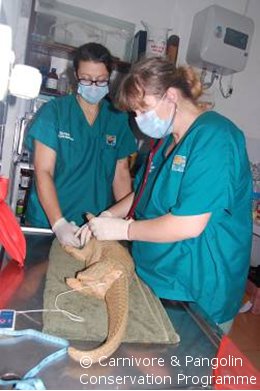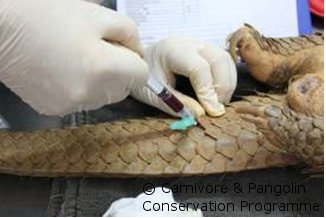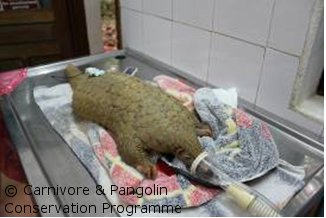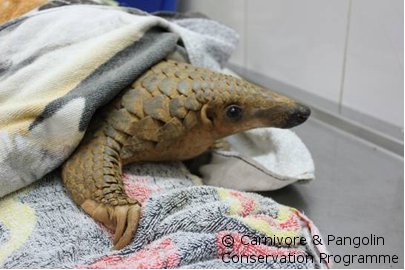Our Fellow Tran Quang Phuong is working as part of the Carnivore and Pangolin Conservation Programme (CPCP) team in Vietnam to fully rehabilitate and release Sunda pangolins that have been confiscated from the illegal wildlife trade industry.

In Vietnam, a veterinary team from the Wildlife Conservation Society has given seven specially selected pangolins a complete medical health check, to prepare them for possible release into Cat Tien National Park, where they will have the chance to live as wild pangolins.
The health check results will be sent to CPCP and used to decide which pangolin is the most suitable to transfer to Cat Tien National Park. The team aim to transfer the selected candidate by August 2012.
To reduce stress on the pangolins the vets took blood, faecal, scale and hair samples from the pangolins while they were under anaesthetic.
The samples were packaged and sent over to the Centre for Nature Resource and Environmental Studies in Hanoi where they will be processed by Dr Minh Duc Le, a renowned Vietnamese conservation biologist.
Genetic analysis of the pangolins will help create a gene ‘library’ that will be used in the future to assess the origins of trade-confiscated pangolins and gain greater insights into trade routes.


In the meantime, the CPCP team attached radio transmitters to 3 other pangolins (selected because they displayed behaviour similar to wild pangolins), and put them into a quarantine enclosure. These pangolins will be carefully observed to see how they are responding and adapting to their new accessories.
They have to stay quarantined for a month before being transferring to the acclimatisation enclosures in Cat Tien, just to make sure that they are completely disease-free and pose absolutely no risk to any wild pangolins. CPCP staff will visit the acclimatisation enclosures this month to make the final adjustments necessary for the pangolins, such as the installation of native trees and climbing logs.
The remaining pangolins that have not yet shown any natural behaviours allowing them to go to the next stage of rehabilitation are being monitored 24-hours a day by the CPCP staff, using direct cameras during the day and infrared cameras at night.
Keep your eyes peeled for next month’s update! Read last month’s blog >
